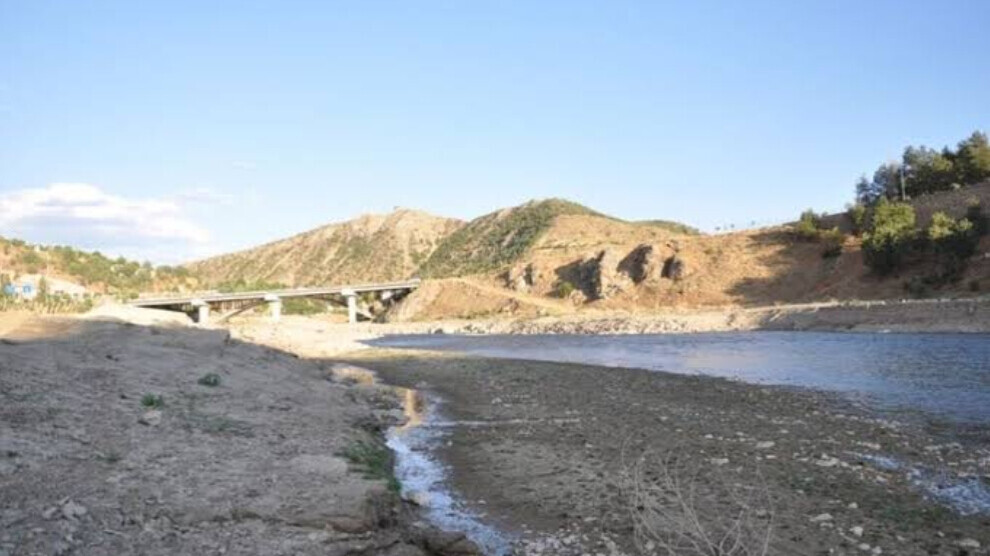Water level in Munzur falls to the lowest level in its history
The Munzur Stream in Dersim, where six dams and HEPPs have been built in the last ten years, has reached its lowest level in history due to drought.
The Munzur Stream in Dersim, where six dams and HEPPs have been built in the last ten years, has reached its lowest level in history due to drought.

Snowfall in the Munzur Mountains, which receives 3-4 meters of snow every winter and is one of Kurdistan's greatest snowfall places, is currently measured in millimeters. Due to the drought, most of the sources feeding the Munzur Stream have dried up, causing the stream to run at its lowest level in recent years.
6 DAMS AND HEPPs IN THE LAST 10 YEARS
While the water flow in the rivers and meadows began to decline due to the HEPPs and dams that have been built, very few glaciers remained in some portions of the Ağrı, Cilo, and Süphan mountains due to global warming in Kurdistan. In Dersim, one of the places most affected by this problem, six dams and HEPPs have been erected in the last ten years.
Munzur's flow rate has dropped to its lowest point in history. According to information gathered from officials, while the flow rate of Munzur was 30 cubic meters per second in October, the water level dropped by half compared to the previous year, and was measured at 14 cubic meters this year. The water level in the Munzur Stream, where a similar situation occurred in the winter months of 1934, is said to have dropped this far for the second time in 87 years.
The inadequacy of precipitation, which is below seasonal norms throughout the year, has resulted in the abandonment of many agricultural fields, while animal husbandry, which is the main source of subsistence, has also suffered. Extreme temperatures and low rainfall make meadows and pastures ineffective, while a lack of water supplies causes animals to become ill. The increase in feed prices caused by the drought puts the region's animal husbandry workers in a tough position. People who have both food and water problems say they want to sell their animals in the face of the devastation they've suffered, but they can't, since animal prices have dropped.
NATURAL CATASTROPHES INCREASED THE DROUGHT
Precipitation plummeted by 56% compared to normal in 2021, the hottest summer in the last 50 years, and several regions were labeled as "extraordinarily dry," "extremely severe arid," or "severely dry" on maps. Despite the academics emphasizing that raising the forest rate will have a "major influence on the drought and also increase the amount of precipitation in the summer months," forests continue to be burned and cut down as a result of the specific war tactics implemented in Kurdistan.
While military operations cause forest fires in Dersim, tree cutting in the Karacehennem forests in Kızılağaç, Aynik (Meşeli), and Çatak villages of Karlıova district in Bingöl continues. Trucks are transporting trees that have been cut down for days for "security concerns." On September 20, a military operation was launched in the area where the tree was felled, and a fire broke out as a result of the bombing.